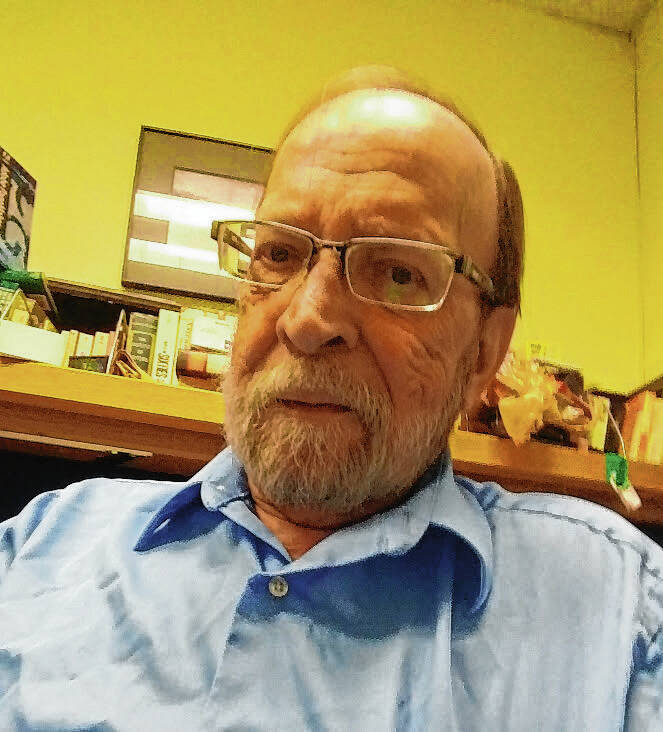Came across this amusing story the other day:
“According to the National Aeronautics and Space Administration,” the asteroid belt between Mars and Jupiter “is home to around $700 quintillion” worth of precious metals, “— that’s $100 billion for every one of the seven billion people on Earth.”
Of course, the story is a bit outdated; the Earth now has eight billion souls, so we’re only talking $87.5 billion, not a nice round figure, but not chump change, either. It’s still amusing, though – rather than astounding or breathtaking – if you just consider basic economics.
You don’t even have to get into the weeds of supply-and-demand calculations. You just have to remember that “Twilight Zone” episode in which the crooks stole $1 million in gold and had the “escape plan” of going into suspended animation for about 100 years. They awoke on schedule but then killed each other off while lugging the gold through an unforgiving desert, never to learn that they came to in a time when gold was manufactured and therefore plentiful and pretty much worthless.
When the supply is low, the value is high. As the supply increases, the value comes down. If that $700 quintillion worth of ore could somehow be mined and distributed equitably, it would be worth about as much as the billions in crypto currency FTX CEO Sam Bankman-Fried “owned.”
You remember gold.
For a good while there, it backed our currency. The amount of currency was limited by the amount of gold the government possessed, taking the supply of money out of imperfect human hands. “We have gold because we cannot trust governments,” Herbert Hoover said.
But Franklin Roosevelt, believing in the perfectibility of humans and the divine right of powerful government, forced all Americans to convert their gold coins, bullion and certificates into U.S. dollars. And Richard Nixon, who never encountered a bad Democratic idea he didn’t want to make worse, severed the final link between gold and currency.
Which means we, and therefore the rest of the world, live with a fiat currency, backed by nothing and able to fluctuate wildly based solely on the government’s willingness to print or borrow whatever it thinks is needed. So, we have an economy too complex to understand and a national debt over $30 trillion no one wants to think about.
Our money has value only because we think it does, and we think it does only because the government says it does and we have faith in the government’s word. If we lose that faith, our money becomes worthless.
Not a lot of that “money” is actual currency that we can see and touch. I saw another interesting article recently. Of all the trillions of dollars in the world economy, only 8 percent is actual, physical, hold-in-our-hands cash.
I grew up poor, so I still put a lot of faith in cold, hard cash. I have a bank account and debit and credit cards that enable me a lot of economic freedom in my daily life. But if I don’t have $100 in folding money on me, I feel like a vagrant on the road, lost and hoping some good Samaritan will offer me a hot meal.
I simply cannot fathom the trust people have in crypto currency, which never was anything but numbers on a screen, backed not by a faith in government and our institutional history but wishful thinking that people could be counted on to keep doing what they promised to do.
It’s that “let’s pretend” attitude that enabled FTX to do stupid things like issuing its tokens to a hedge fund it owned, in essence balancing its books by loaning money to itself.
There is also a lot of “let’s pretend” when it comes to the national debt. One of the reasons it has been allowed to get so big is that no one really thinks it is real money. It’s just numbers on a screen that can be added to or subtracted from with no actual effect in the real world.
Some of that money is owed to foreign governments, of course, so that could have foreign policy implications down the road, to say the least. And if we don’t pay attention, the government might even go the FTX route and just loan money to itself, by, for example using the Social Security trust fund to buy Treasury notes.
Nah. That would just be crazy.
Leo Morris, columnist for Indiana Policy Review, is winner of the Hoosier State Press Association’s award for best editorial writer. Morris, as opinion editor of the Fort Wayne News-Sentinel, was named a finalist in editorial writing by the Pulitzer Prize committee. Contact him at [email protected]. Send comments to [email protected].




